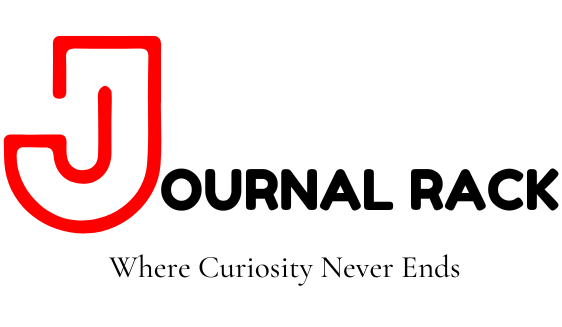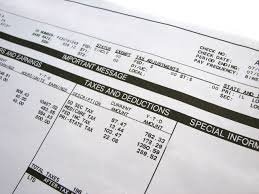Pay stubs are a critical part of employment documentation, yet many part-time workers often overlook their importance. Whether you work a few hours a week or juggle multiple part-time jobs, understanding your pay stub is essential for budgeting, taxes, and tracking your earnings accurately.
This guide breaks down everything you need to know about pay stubs for part-time workers, from the basics to practical tips for managing your income.
What is a Pay Stub?
A pay stub, also called a paycheck stub or earnings statement, is a document that outlines the details of your pay for a specific period. It usually accompanies your paycheck or direct deposit notification and provides a transparent breakdown of your earnings, deductions, and net pay. Even if you work part-time, employers are legally required in most regions to provide this information.
Pay stubs are more than just numbers—they serve as a record of your employment and income, which can be crucial for applications, taxes, and personal financial planning.
Key Components of a Pay Stub
Understanding a pay stub involves recognizing its main sections. For part-time workers, these typically include:
Employee Information:
This section lists your name, employee ID, and sometimes your address. It confirms who the paycheck is for and ensures the record matches your employment details.
Pay Period and Date:
Pay stubs specify the start and end dates for the pay period, as well as the payment date. Part-time workers may be paid weekly, bi-weekly, or monthly, depending on company policy.
Earnings:
This section details the hours worked and the pay rate. Part-time workers may see regular hours, overtime hours (if applicable), and other earnings such as bonuses or tips. For hourly workers, the calculation is usually straightforward:
Hours Worked × Hourly Rate = Gross Pay.
Deductions:
Deductions are amounts subtracted from your gross pay. Common deductions include federal and state taxes, Social Security, Medicare, and sometimes retirement contributions or health insurance premiums. For part-time workers, some deductions may vary depending on whether you qualify for certain benefits.
Net Pay:
Net pay, often referred to as “take-home pay,” is what you actually receive after deductions. This is the amount deposited into your bank account or given as a check.
Year-to-Date Totals:
Many pay stubs include cumulative figures for the year, showing total earnings, deductions, and net pay to date. This is especially useful for tax filing and financial planning.
Why Pay Stubs are Important for Part-Time Workers?
Even if you work only a few hours a week, pay stubs play a vital role in managing your finances. Here’s why:
Proof of Income:
Pay stubs are often required when applying for loans, credit cards, or rental agreements. They validate your income and employment status, making them an essential financial document.
Budgeting and Financial Planning:
Knowing exactly how much you earn and what deductions are taken helps part-time workers plan their budgets effectively. Pay stubs reveal your real take-home pay, which is crucial for managing bills, savings, and discretionary spending.
Tracking Errors and Discrepancies:
Mistakes can happen, even in small companies. Reviewing your pay stub ensures you are compensated correctly for your hours worked. If discrepancies arise, you can address them with your employer promptly.
Tax Preparation:
Your pay stub serves as a preliminary record for tax filing. It helps you estimate your income and deductions, making it easier to prepare your tax returns accurately.
Common Pay Stub Terms Part-Time Workers Should Know
For part-time workers, understanding certain pay stub terminology can make reading the document easier:
- Gross Pay: Total earnings before any deductions.
- Net Pay: Actual earnings after all deductions.
- Overtime Pay: Extra pay for hours worked beyond the standard workweek, typically 1.5 times the regular rate.
- Withholding: Taxes deducted from your paycheck for federal, state, and sometimes local obligations.
- FICA: Federal Insurance Contributions Act tax, which includes Social Security and Medicare.
- Benefits Deductions: Contributions toward health insurance, retirement plans, or other voluntary benefits.
Differences Between Full-Time and Part-Time Pay Stubs
Part-time workers may notice differences in their pay stubs compared to full-time employees:
Hours Worked:
Part-time employees often work fewer than 30-35 hours per week. This is reflected in lower gross pay.
Limited Benefits:
Many part-time jobs do not offer extensive benefits, which means fewer deductions related to health insurance or retirement contributions.
Variable Schedules:
Part-time schedules may fluctuate weekly, so pay stubs can vary significantly in earnings from one period to another.
Overtime Eligibility:
Some part-time workers qualify for overtime depending on total hours worked per week or the company’s policy. Understanding how overtime is calculated is essential.
Tips for Managing Your Pay Stubs as a Part-Time Worker
Review Every Pay Stub:
Always check your pay stub for accuracy. Confirm your hours worked, pay rate, and deductions.
Keep Digital and Physical Copies:
Store pay stubs securely, either as PDFs or printed copies. This ensures easy access for tax preparation, loan applications, or resolving disputes.
Track Multiple Jobs:
If you work more than one part-time job, maintaining a record of all pay stubs helps track total income and taxes withheld.
Understand Deductions:
Knowing what each deduction represents helps you understand your net pay and prevents confusion when tax season arrives.
Use Pay Stub Tools:
Online pay stub generators or payroll portals can help part-time workers access and manage pay stubs efficiently, especially if your employer doesn’t provide detailed statements.
Conclusion
Pay stubs are essential tools for part-time workers, providing transparency in earnings, deductions, and net pay. By understanding how to read and manage your pay stub, you can ensure accurate compensation, plan your finances wisely, and simplify tax filing. Whether you are a student, freelancer, or someone balancing multiple part-time jobs, staying informed about your pay stub helps you take control of your financial health and avoid costly mistakes.
Remember, even if your work hours are limited, your pay stub is a valuable record of your labor and income. Take the time to review it carefully, keep organized records, and use it as a foundation for financial planning and accountability.





